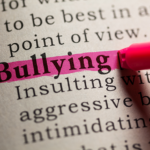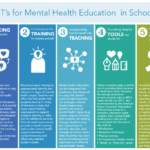Internalizing behaviors primarily refer to issues that involve internal processes, such as anxiety, depression, and somatic complaints.
BEST in CLASS: What Coaches and Teachers Say About It. Part 1: Coach Perspectives
BEST in CLASS (Behavioral, Emotional, and Social Training: Competent Learners Achieving School Success) is a tier 2 (targeted) evidence-based intervention for young children with persistent and intensive challenging behaviors.
Continue reading →Supporting Students with Behavioral and Emotional Needs: A Conversation with Carl Sumi
In the latest episode of The SRI Homeroom podcast, Senior Principal Education Researcher Carl Sumi joined host Kori Hamilton Biagas to discuss strategies, interventions, and recommendations for educators, schools, and researchers hoping to meet that need head-on.
Continue reading →BEST in CLASS: What Coaches and Teachers Say About It. Part 2: Teacher Perspectives
Practice-based coaching (PBC) promotes a strong collaborative partnership between teachers and coaches to facilitate the use of effective instructional practices. The PBC process includes skills instruction on BEST in CLASS practices, shared goals and action planning, implementation support, classroom observation, and reflection and feedback.
Continue reading →Which Kindergarteners are at Risk of Being Bullied and/or Becoming Bullies, and What Can Educators and Parents Do About It?
Bullying occurs when children experience unwanted and aggressive behavior from more powerful peers repeatedly over time.
Continue reading →Supporting Youth in a Social Media Boom
The popularity of social media is widespread and continues to rise, especially among youth. According to a recent general advisory report released by the Office of the U.S. Surgeon General, up to 95% of youth aged 13-17 regularly use at least one social media platform.
Continue reading →What a long, strange trip it’s been
Going back to the classroom this year will be tough. That’s why we’re focusing on bringing you resources to help with recovery from all sorts of trauma.
Continue reading →How early childhood education providers can use COVID-19 relief funds to establish lasting mental health supports for staff and children
Did you know? The recent influx of federal COVID-19 relief funds provides an opportunity to fund early childhood educational mental health supports and services!
State agency leaders and early childhood educators can use infant and early childhood mental health consultation (IECMHC) to meet children’s social and emotional needs during and beyond ...
Continue reading →How can we incorporate mental health education into schools? Consider the 5 T’s.
Mental health is a critical part of students’ overall health and well-being.
Students today face a range of demands that can impact their mental health. From meeting high academic expectations to navigating the world of social media to maintaining relationships with their peers, students often have busy schedules that result in ...
Continue reading →When helping students hurts: Secondary Traumatic Stress (STS)
We were presenting to a group of teachers about our project examining the effects of a group-based intervention for middle schoolers experiencing traumatic stress. I was describing the effects of trauma on students’ academic performance when a teacher stood up and loudly exclaimed, “But what about OUR trauma? Who is ...
Continue reading →








